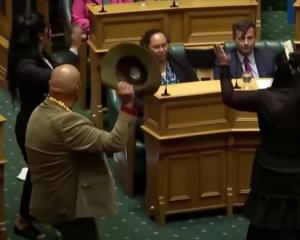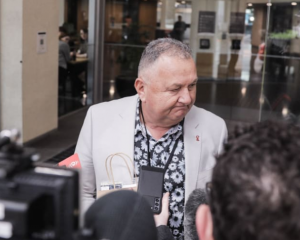Hold on to your hats. The nation could be in for an interesting, if occasionally bumpy, ride.
This week, the Government made good on the first stage of two election promises that could reshape New Zealand's future democracy, with the release of proposals to replace Labour's repealed Electoral Finance Act, and the unveiling of the proposed wording for next year's referendum on MMP.
As always, there is scope for discussion on the extent to which the proposals, as currently set out, make good the perceived shortcomings of the legislation they have been devised to address.
The fact that these revisions are now upon the country is not in itself controversial, but argument will ensue as the finer points of both proposals are picked over in submissions to select committees, then as the subsequent Bills move through to their readings in the House.
This is as it should be: the evolving and revolving machinery of the democratic process.
Few, including the Labour Party, opposed the repeal of the Electoral Finance Act, the rushed enactment of which is no doubt seared on to the party's psyche in big bold letters: make law in haste, repent at leisure . . . on the opposition benches.
(They might also be thinking the same about the Foreshore and Seabed Act.)
For it was legislation on election finance, as much as anything, around which angry sections of the electorate cohered during Labour's final term.
It proved to be, in many respects, complicated and confusing, and arguably imposed unacceptable constraints on freedom of expression.
Arguably, because there were understandable reasons for Labour's reforms, not least the existence of hidden parallel campaigning.
It will be recalled that, in 2005, the Exclusive Brethren attempted to influence the outcome of the poll by mounting a covert and costly campaign against the Greens and Labour.
Labour had also been concerned about the extent to which campaign finance was both anonymous and uncapped, raising the spectre, it claimed, of "big money" interests tilting the odds against a fair contest: the even playing field argument.
In an attempt to close loopholes in the campaign finance rules, and to prevent parties "jumping the gun" and subverting the spending caps, it also created a controversial regulated campaign period of three months prior to polling day.
The National-led Government's reform package requires disclosure of the total donations that parties receive, in banded amounts; the amount of money allowed to be spent on campaigning will increase in line with inflation; people, or entities, who spend more than $12,000 on parallel campaigning will have to register with the Electoral Commission, but the $120,000 cap on third-party spending during election campaigns will cease to exist; and the regulated three-month campaign period will be maintained.
While broadly commended, the most controversial element of the package is the lack of a cap on third-party spending - a political fault-line along which the most robust debate will run.
The context within which such a debate unfolds could, however, be radically altered by the proposed referendum on MMP.
Four alternative voting systems are to be presented to voters at next year's general election, but only as a secondary element: the first asks whether MMP should be maintained; regardless of how that question is answered, the voters will then be asked to choose between the four alternatives.
If a majority does not want to retain MMP, a second, binding, referendum will be held in 2014 asking voters to choose between MMP and the highest polling alternative from the first referendum.
An education campaign would be run before the referendum with the total cost, including staging the referendum, amounting to $10.97 million.
Should the majority favour the status quo, the commission would review MMP, seeking public input, to see whether any changes were desirable - for example, the 5% threshhold, or the rules by which an electorate MP carries others into Parliament regardless of that party's total vote.
So far, so non-controversial.
But, again, expect raised voices over lobbying by interest groups prior to the referendums.
For unless the select committee process allows changes, there will be no limits on spending by such groups - and this will almost certainly have some citizens complaining that the "big money" of the few could potentially skew the will of the many.
Watch this space.












